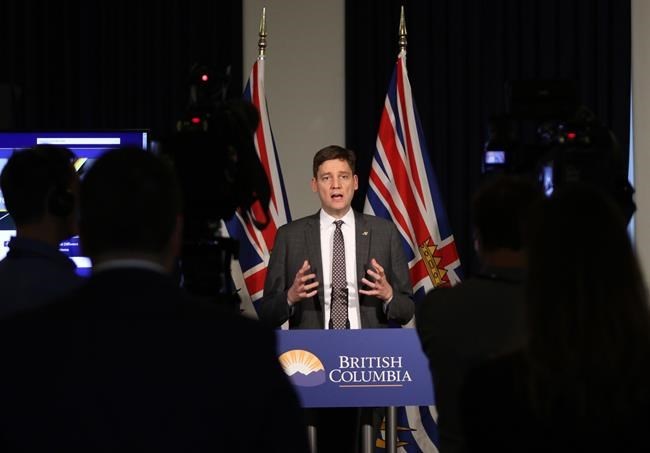British Columbians have until the end of February to shape next year’s referendum on whether to scrap the province’s first-past-the-post voting system and replace it with a form of proportional representation.
Attorney General David Eby unveiled a website Thursday where people can suggest how to word the ballot or what types of voting systems should be considered.
“Government strongly believes that British Columbians deserve a say as to how their voice is represented in this building,” Eby said.
“There is no more fundamental question to our democracy than how the will of the people is translated into the activity in the legislature.”
The Opposition, however, is already accusing the NDP government of rigging the process against the current system.
Liberal critic Andrew Wilkinson said the questionnaire on the new website is “massively biased” in favour of proportional representation.
“So we already have a biased process coming out of the Attorney General’s office when they promised to be neutral,” he said.
“I think people are going to get a bit jaded about this, realizing they’re being taken for a ride.”
The legislature is expected to pass a bill this month that sets the stage for a mail-in referendum to be held by the end of November 2018.
Eby insisted that the government wants a fair and independent process, which is why it’s asking the public to help design the referendum.
He’s also recusing himself from any cabinet or caucus discussions about the referendum in order to serve as a neutral official. “I will not be involved in any way with government’s submissions or activities around the referendum,” he said.
Eby said the website at engage.gov.bc.ca/HowWeVote provides people with information on voting systems around the world and features a questionnaire on key issues.
Position papers submitted by political parties and other groups will be posted on the website.
Eby’s ministry will compile the information and prepare a public report with recommendations to cabinet. “We want to hear from British Columbians in every corner of the province,” he said.
Wilkinson said the Liberals don’t see the need for a referendum given that British Columbians rejected electoral reform in referendums in 2005 and 2009.
“We’ve had peace, order and good government in this country for 150 years with the current electoral system,” he said. “It’s time for the NDP government to realize that they’re going down the wrong track.”
The Electoral Reform Referendum 2018 Act, which is being debated in the legislature, states that if more than 50 per cent of voters choose a new voting system, the B.C. government will be required to put the system in place for a provincial election held after July 1, 2021.
If the minority NDP government falls before that date, the resulting election will take place under the first-past-the-post system.
Eby said the initial phase of public engagement will cost more than $1 million.
The cost of the subsequent referendum will depend on the public’s suggestions about how to run the vote and whether the government should provide money to groups on either side of the debate.



